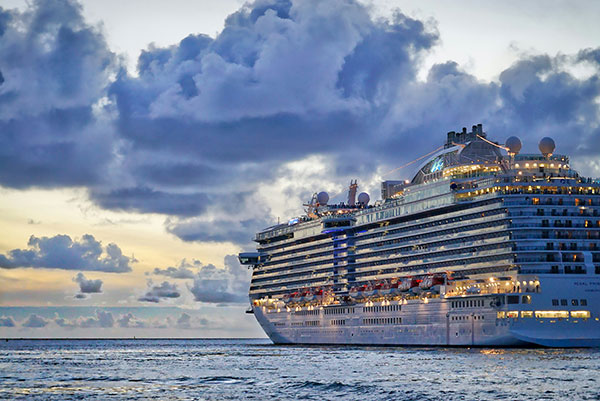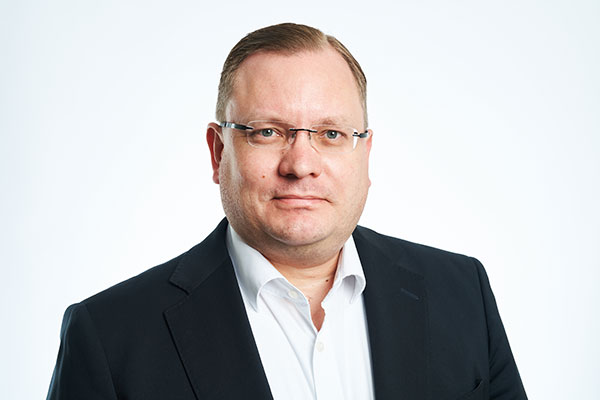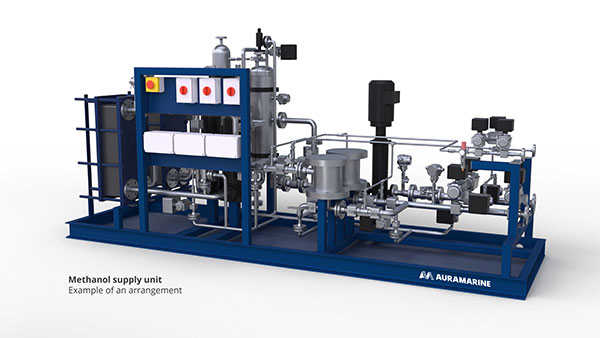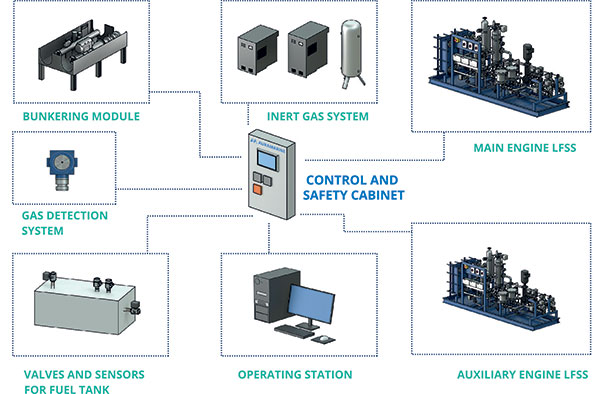Environment
Systems
Use of methanol fuels will reduce ship emissions

photo: UNSPLASH
With the advent of constantly tightening IMO regulations on the environmental emissions in maritime traffic, new solutions for ship fuels are sorely needed. Shipyards are starting to turn to
methanol, a promising and viable ”green” fuel alternative.
To reduce ship emissions, new types of
non-fossil fuels are called for.
A system that supplies methanol fuel
to ship engines could be useful in stopping
environmental emissions of, say, SOx and
NOx emissions, as well as harmful particulates.
”Pilot projects for the use of methanol
in marine engines started around
2015. However, large-scale utilisation of
methanol did not commence until 2022,”
says Mr. John Bergman , CEO of Auramarine
based near Turku in Finland. The company
has a long history of various marine
fuel supply solutions.
”These days, shipyards in China
and South Korea are largely resorting to
methanol-fuel engines in their shipbuilding.
Methanol fuels are a growing market,
with many shipowners considering methanol
conversions for their existing fleets.”
Within Auramarine, the development
of methanol supply units and other methanol-
fuel solutions was started in 2020.
The task was given to a team of fifteen
R&D engineers.
”One of our first clients in this field
is the Swedish shipowner Terntank who
is currently having three new ships under
construction at a Chinese shipyard. Auramarine
will deliver methanol-fuel equipment
for them – including automation and
accessories – by June 2024. Other projects
are ongoing or being finalised,” Mr. Bergman
mentions.
FINDING THE RIGHT VARIABLES
In an era of constantly tightened international
regulations on ship emissions,
increasing the use of methanol fuel in ship
engines is an obvious choice.
According to Mr. Bergman, the specifications
of methanol-fuel systems are typically
determined on a case-by-case basis
according to ship and engine types.
In Auramarine’s solution, the methanol
supply unit will provide methanol from
the service tank to the master fuel valve
while regulating the flow, pressure and
temperature of the methanol. When combined
with filtration, this ensures its suitability
for use in engines. The system actively
maintains the supply pressure within the
specified tolerances in the course of any
load changes.
“To cut greenhouse gas emissions,
methanol is one of the most viable clean
fuels,” notes Bergman.

John Bergman, CEO, Auramarine Ltd.
photo: AURAMARINE LTD
”There are many variables in the
design of optimal systems. Also, the overall
reduction of the ship’s emissions is based on
several factors. Even the quality of the methanol
fuel being utilisted can be relevant.”
”In accordance with IMO regulations,
ships running on alternative fuels
need to have a back-up fuel system for
MGO marine diesel oil. Even with ships
utilising methanol as the main fuel type,
some 5 to 10 percent of MGO is generally
needed as ignition fuel. With a combination
of green methanol and bio oil as
ignition fuel, emissions can be significantly
reduced,” Bergman points out.
”When existing ships are converted
for methanol fuel, possibly new fuel
tanks are required. The necessary space
for them just has to be found somewhere
on board.”

Auramarine Methanol Supply Unit.
photo: AURAMARINE LTD
LARGE MARKETS IN ASIA
Typically, Auramarine will deliver the methanol
supply system hardware – apart from
the fuel tanks – as well as the fueling system
with methanol supply pipes, junctions,
balancing pumps, sensors, valve units, and
automation, including software.
”Quite a lot of automation is
required. Methanol is a fuel with a low temperature flash-point so the automation
systems need to be approved by the
marine shipping classification company.
This type of automation is Auramarine’s
core expertise and know-how,” Bergman
adds.
”Our R&D engineering department
has invested heavily in this field as we see it
is essential for the future of marine traffic.”
The equipment is manufactured
either at Auramarine’s own factory in
Shanghai, China, or by trusted manufacturing
partners in Finland.
”Asia is our main market area. Our
Shanghai factory has been in operation
for 22 years already. Currently, China and
South Korea are the leading shipbuilders
worldwide in terms of volume.”
”The system will be delivered ready
for assembly to our customers who in turn
will install the system on board. Auramarine
will then handle the testing at sea,”
explains Bergman.
TAILORED SYSTEMS
AND FINE-TUNING
According to Mr. Bergman, the particularly
challenging part in the development work is that the technology is quite innovative
and therefore new for everybody involved.
”Acquiring knowledge of the whole
system is a full-time learning process. Optimising
the ship emission reductions has to
be worked on a ship-by-ship and engineby-
engine basis. There’s a whole lot of variables
to be considered.”
Furthermore, the type of methanol
fuel being utilised in ship engines can be
significant.
”Some types of methanol are being
manufactured by using fossil fuels while
other types may be synthetically produced
from environmentally friendly raw
materials. Such differences have an effect
on the total environmental impact of
methanol.”

Auramarine Methanol Supply System – Full fuel system from design to commissioning and lifecycle services.
photo: AURAMARINE LTD
SAFE SOLUTIONS FOR
HAZARDOUS AREAS
The Auramarine supply unit is designed
to fit on closed and Ex rated hazardous
areas where fire-safety is of paramount
importance. The health and safety guidelines
have been taken into account.
This level of safety is achieved by
using self-draining mechanical design in conjunction with the nitrogen inerting process
and specially designed configurations
to any serviceable methanol line segments.
Also, all components and electric equipment
will be selected for demanding use
in a hazardous area.
In order to minimize the volumes of
electrical equipment in a hazardous area,
the electrical cabinets and control panels
are designed to be fitted separately to a
safe area.
Auramarine’s methanol supply system
is suitable for all types of ships, regardless
of ship size.
”The key requirement is that the ship
will need an engine that is compatible with
methanol fuel. Quite often, some kind of
methanol conversion for the ship engine
will be required,” Bergman explains.
In his view, the demand for methanol
supply systems will skyrocket in the
near future.
”Green technology is becoming
increasingly important for the maritime
industries. A large portion of the world
trade is currently being transported by
sea. For such goals, clean fuel technology
would be just the thing.”
by: Ari Mononen



